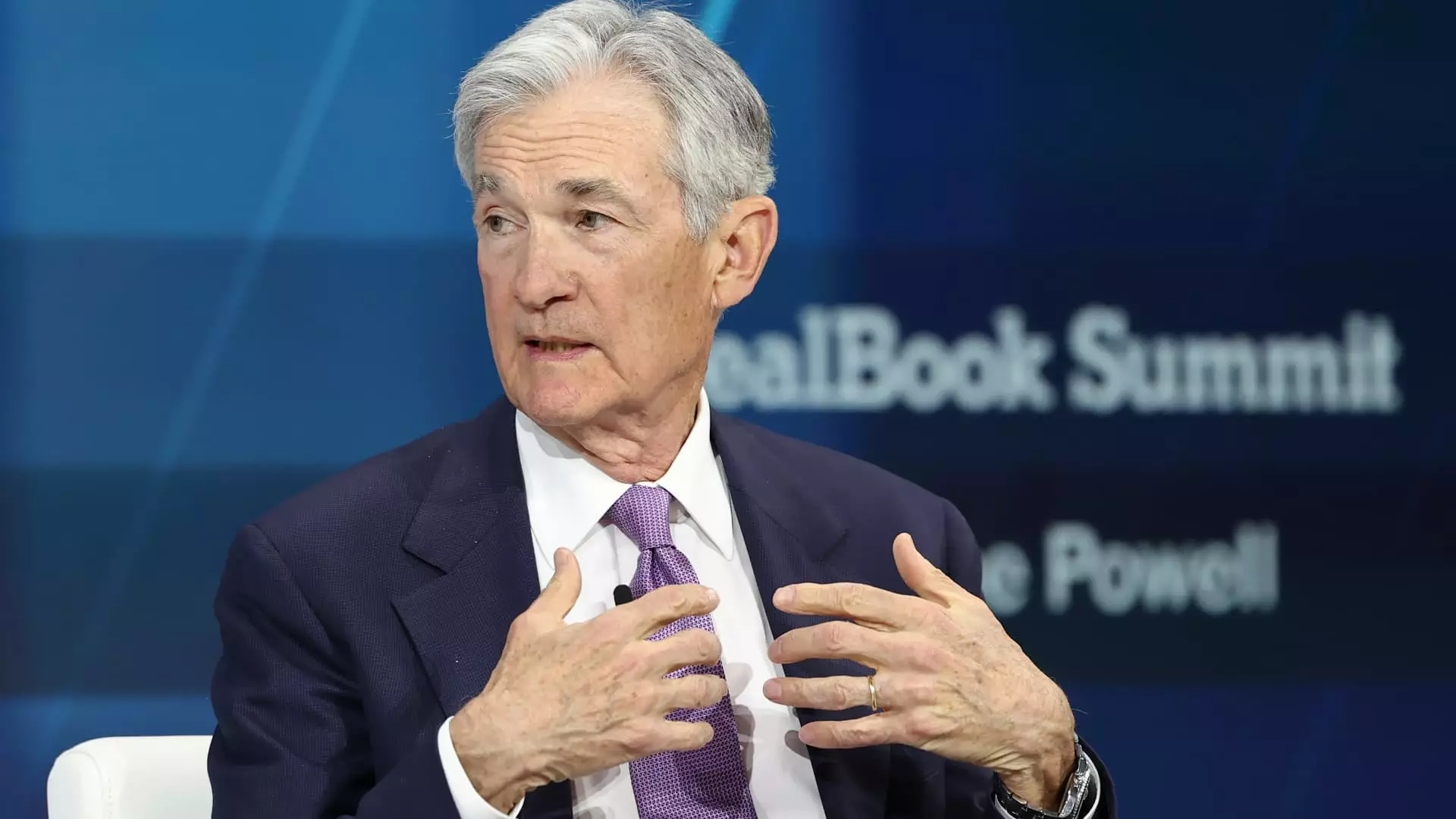In the often unpredictable world of cryptocurrency, the influence of notable figures can have stark ramifications on market movements. Recently, Federal Reserve Chair Jerome Powell made headlines with his comments during the DealBook Summit, which unintentionally provided a boost for Bitcoin, pushing its value past the $103,000 threshold. Powell’s reflections on Bitcoin were remarkable not just for their content but also for their context. The central bank leader made clear that while he refrains from personal investment in cryptocurrencies, his views lend an air of legitimacy that many in the crypto community have long sought.
The core of Powell’s message highlighted Bitcoin’s position within the broader financial ecosystem. He described Bitcoin not as a direct competitor to the U.S. dollar but positioned it alongside gold—a speculative asset rather than a functional currency. Such comments serve to align Bitcoin’s narrative with that of other well-established forms of investment, which may shift public perception and institutional acceptance of the digital currency.
Bitcoin vs. Gold: A Modern Comparison
Powell’s assertion that Bitcoin competes with gold, rather than traditional fiat currencies, suggests an important evolution in the role that cryptocurrencies, particularly Bitcoin, play in investments. The central banker recognized the volatility of Bitcoin and categorized it primarily as a speculative asset, unequivocally stating, “It’s just like gold, only it’s virtual.” This analogy is vital because it empowers investors to view Bitcoin through the lens of precious metals, a category widely regarded as a safe haven in turbulent economic times.
Market strategist Joel Kruger provided additional insights, suggesting that viewing Bitcoin through this comparative framework adds credibility to Bitcoin’s status as a significant player in the investment landscape. Given that gold has a market capitalization roughly ten times that of Bitcoin, it implies that there is substantial room for growth. This latest digital asset is not simply a flash in the pan; it has the potential to become a major investment category alongside more traditional financial assets.
The immediate market reaction to Powell’s commentary did not go unnoticed. Following his statements, Bitcoin surged by 4% the next day, significantly igniting interest from both retail and institutional investors. Such price movements reflect an emerging trend where statements from influential financial figures can sway investor confidence and, consequently, market prices.
Additionally, Bitcoin’s dramatic rise following the recent U.S. presidential election underlines the volatility that often accompanies market enthusiasm. The remarks made by President-elect Donald Trump in favor of cryptocurrency catalyzed Bitcoin’s skyrocketing value, contributing to the intoxicating mix of politics and market dynamics. This interplay illustrates that external socio-political factors can have profound implications on cryptocurrency valuations.
However, while Powell’s remarks may have inadvertently facilitated Bitcoin’s recent surge, the permanence of such influences remains a critical consideration. The market is notoriously capricious, and Susan Becker, a financial analyst, points out that speculative bubbles can be easily inflated by transient events. “While Powell’s endorsement is notable, the true test of Bitcoin’s value proposition lies in its adoption as a practical form of currency or investment, rather than an ephemeral speculative tool,” she said.
Moreover, anticipatory remarks and regulatory shifts—such as the potential appointment of pro-crypto figures like Paul Atkins to the SEC—could redefine the regulatory landscape for digital currencies. If the SEC adopts a more favorable stance towards cryptocurrencies, this could pave the way for greater institutional investment and a more stable market environment.
Ultimately, as Bitcoin continues to evolve and adapt within the global market, each comment from figures like Powell has the potential to either catapult it into the mainstream or contribute to its decline. The landscape is changing rapidly, and both investors and regulators will play pivotal roles in shaping the future of Bitcoin and its competitors. As the digital currency market expands, the implications of such high-profile endorsements will certainly be critical factors to watch, even as the future of Bitcoin remains a complex interplay of speculation, regulation, and legacy financial systems.

